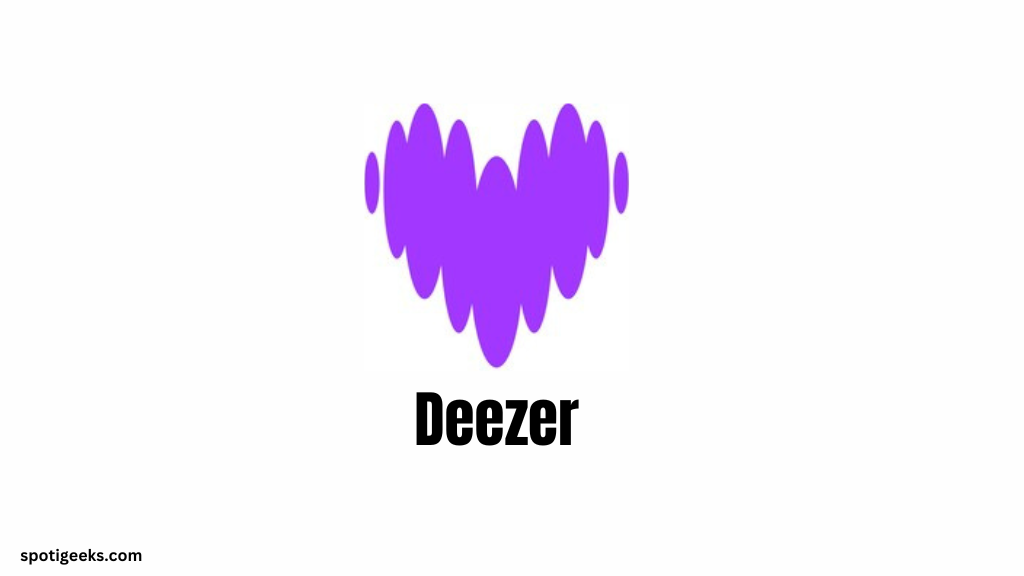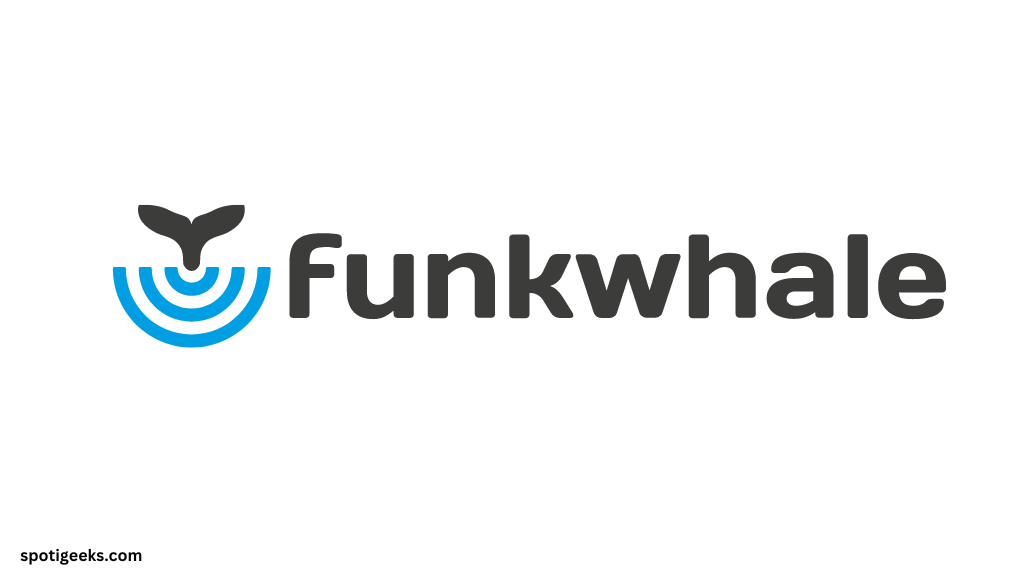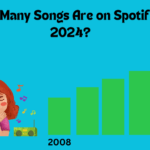There is no doubt that Spotify is one of the most popular services among music streaming platforms. It earned its place thanks to the ease of use of its applications and the fact that they are available on almost any modern device from Windows, Mac, Linux, mobile apps (even on discrete operating systems such as Windows Phone or Blackberry), SmartTVs.
Its current library of over 40 million songs is continuously growing and has many great features like personalized playlists based on user tastes, artist-based radios, podcasts, social media integration, collaborative playlists, etc. and many others, making the platform a very good one. An attractive option for the user who wants to have almost everything without any effort.
However, there is life beyond Spotify. The limitations of its free version and the growing list of new competitors ready to compete with it by offering better features and prices are driving more and more users to other services that may be less well-known but meet their needs. According to If you want to know how to make the jump, we recommend you take a look at our list of the most popular Spotify alternatives.
Best Spotify Alternatives
Spotify alternatives are primarily music streaming services but can also be audio players or music discovery services. Filter through them if you want a narrow list of Spotify Alternatives or want to find specific Spotify functionality. So, in this article we will discussed 7 best Spotify Alternatives.
1. Deezer

Deezer is a great option because its user experience is quite Spotify Alternatives, but it also has about 70 million songs available, about 30 million more than its competitor. It also has a Shazam-like feature called SongCatcher, which you can use to identify the names of songs that are playing.
Flow is another cool feature missing on Spotify, with recommendations made specifically for you and songs you don’t remember so you can enjoy music for longer. The free version of Deezer works like Spotify (albeit with fewer ads between songs), but you can always get the premium version for $10 USD.
Deezer is the most popular web-based, Windows, Android and Mac Spotify alternatives.
Deezer is a famous commercial Spotify Alternatives.
Top Features of DEEZER
- Music Library
- Unlimited music
- Internet radio
- Hi-Fi sound
- The discovery of music
- Personalized recommendations
- Student discount
- Dark mode
- Continuity
- Works offline
- Media streaming
Pros and Cons of DEEZER
Pros:
- Vast music library with diverse genres.
- High-quality audio, including FLAC streaming.
- Personalized music recommendations.
- Offline listening feature.
- Cross-platform compatibility.
- Integrated lyrics for songs.
- Wide selection of podcasts and radio shows.
Cons:
- Limited availability in some regions.
- Advertisements in the free version.
- Audio quality limitations based on subscription.
- Complex interface design.
- Limits on offline downloads.
- Lack of exclusive content.
- Subscription cost for full features.
2. SoundCloud

SoundCloud is famous for its vast and impressive music and audio library. We’re talking about over 200 million files between songs and podcasts. This is mainly because it is the preferred music streaming platform for new indie artists, which you might not find on Spotify (sounds for electronic music lovers).
The biggest downside to SoundCloud is that you won’t find many well-known artists. It also acts as a kind of music social network where you can share, like and comment on entries, Highlight parts of songs, create your own playlists and podcasts, and follow your favorite artists.
All this means you can find an impressive variety of content compared to Spotify. SoundCloud has a free version with ads, but you can subscribe to one of their premium memberships for less than $5 USD per month.
SoundCloud is the most popular free Spotify Alternatives.
Top Features of SoundCloud
- The discovery of music
- Community oriented
- Music Library
- Self-hosted music
- Music downloader
- Music upload
- Unlimited music
- Dark mode
- IFTTT integration
Pros and Cons of SoundCloud
Pros:
- Diverse content including independent artists.
- Strong community interaction and artist engagement.
- Easy music discovery through recommendations.
- Free tier available.
- Artists can upload their own tracks.
Cons:
- Copyright issues and content takedowns.
- Inconsistent audio quality.
- Limited offline listening in free tier.
- Challenges in monetizing content.
- Facing competition from larger streaming platforms.
3. YouTube Music

YouTube Music has a significant advantage over Spotify, in addition to its extensive music catalog, it includes millions of videos and uses the most intelligent and powerful YouTube search engine, which means that you only need to type a word. Or say something that identifies a song or part of a lyric and you’re sure to find it.
Its interface is really easy and familiar to navigate, on its main page you will find different playlists according to your mood. That way, if you need more energy, need to focus, or need to relax or cheer up, you can use them to forget about searching for specific genres or songs.
But aside from the content, there are two main advantages: you can keep your music offline or watch videos without connecting to Wi-Fi or mobile data. Also, you can keep YouTube videos in the background and continue using other applications without cutting the music until you decide. You can buy YouTube Music Premium for $10 USD.
Top Features of YouTube Music
- Manage playlists
- The discovery of music
- Download YouTube playlists.
- YouTube background listening
- Internet radio
- Student discount
- Playlists
- Recommend music
- Lock screen widget
- Personalized recommendations
- Chromecast support
Pros and Cons of YouTube Music
4. Apple Music

Apple Music is just ahead of Spotify with a catalog of over 50 million songs. If you’re inside the Apple ecosystem, you’ll find Apple Music really interesting because of its integration with the OS without the need for third-party apps.
In addition to its balanced user interface design, you have the option to dive through recommended lists, hits, genres or personalized and updated playlists. It’s possible to follow artists as well as compare and comment on songs, which is a major advantage over Spotify.
You can use the service not only on MacOS or iOS devices, but also on Android and Windows, but keep in mind that it does not allow you to listen to music with ads, you only pay. can use the service for a $10 USD membership.
Apple Music is the most popular Linux Spotify Alternatives.
Top Features of the Apple Music
- The discovery of music
- Internet radio
- Lossless audio
- Continuity
- Portable
- Personalized recommendations
- Music store
- Cloud Sync
- Airplay support
- Dark mode
- Ad-free
- Works offline
Pros and Cons of Apple Music
Pros:
- Extensive music library with exclusive releases.
- Seamless integration with Apple ecosystem.
- Curated playlists and radio stations.
- High-quality audio options.
- Offline listening feature.
Cons:
- Complex interface design.
- Limited compatibility with non-Apple devices.
- Subscription cost for full access.
- Lack of a fully functional free tier.
- Limited social features for interaction.
5. Funkwhale

Funkwhale is one of the most popular choices for open-source and self-hosted alternatives to Spotify. You can control your personal music library without worrying about it disappearing from the platform for any external reason.
Unlike Spotify, Funkwhale is made up of different websites or “pods” (like servers) where you can stream your own music to phones or share it with friends. can upload for Funkwhale is completely free, providing the user with a tracking and ad-free experience.
Funkwhale is the most popular self-hosted Spotify Alternatives.
Funkwhale is the most famous open-source Spotify Alternatives.
Top features of the FunkWheel
- Ad-free
- Decentralization
- Federation
- Music Library
- Online music
- The discovery of music
- Create a playlist
- Light weight
- Support for public Activity
- No tracking
- Multiple account support
Pros and Cons of FunkWheel
Pros:
- Decentralized platform for data privacy.
- Open-source software encourages community contributions.
- Supports high-quality audio formats.
- Fosters community engagement and collaboration.
- No subscription fees for access.
Cons:
- Limited mainstream content availability.
- Requires technical expertise for setup and maintenance.
- User interface may be less polished.
- Potential server costs for hosting instances.
- Reliance on third-party instance owners for service availability and privacy.
6. Bandcamp

It’s a great option for independent musicians that combines many of the features of a social network where you can display your music with an e-commerce function that lets you sell your stuff. Unlike Spotify, Bandcamp allows users to stream your music or purchase your discography in physical or digital formats (with a commission of 10 to 15%).
If you are a musician, the premium version gives you several additional benefits such as:
Send private messages to your fans, see the location of your buyers and how they reached you, upload audio to the platform, add videos to your music and related stuff, sending VIP songs via private links, the ability to configure a custom domain, connect your profile with Google Analytics, and disable certain songs from being heard for any reason.
Top features of the BANDCAMP
- The discovery of music
- Music downloader
- DRM free
- Music store
- Integration of merchandise
- Alternative music
- Lossless audio
- Ad-free
Pros and Cons of BANDCAMP
7. TIDAL

If what you’re most interested in is audio quality, Tidal is a great Spotify Alternatives, as it has standard sound options but also Hi-Fi quality ($19 USD/month). It also has support for official videos across a large portion of its catalog.
In addition, it gives you the option to select your playlists from other platforms and transfer them to Tidal. It has a huge advantage if you want to replace your usual streaming music app and Want to try Tidal without losing your music? On the other hand, in many cases you will be able to get access to special events with artists and buy tickets to their shows before they go on sale to the general public.
Top features of the Tidal
- Hi-Fi sound
- Works offline
- Lossless audio
- Personalized recommendations
- Ad-free
- Dark mode
Pros and Cons of Tidal
Pros:
- High-quality audio options.
- Exclusive content and releases.
- Artist-friendly approach with higher royalties.
- Curated playlists for personalized discovery.
- Integration of music videos.
Cons:
- Higher subscription costs.
- Limited music catalog compared to competitors.
- Less intuitive user interface.
- Occasional technical issues.
- Smaller market presence and availability.



